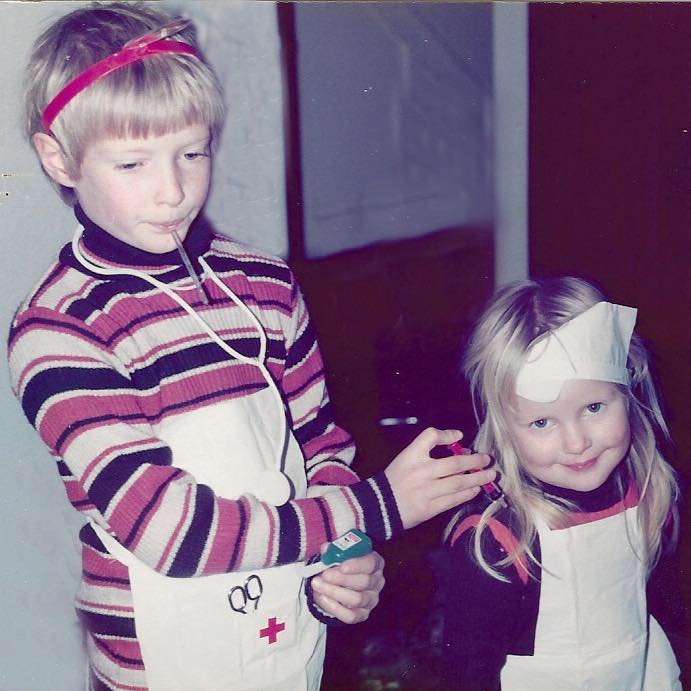
19th March 2019
Tooth Decay in Children – The Preventable Disease
by Lyndsey Beecroft, Dentist and Co-Owner of Roseacre Dental
When Roseacre Dental pops up on your Facebook or Instagram feed, you’ll be used to admiring beautiful smiles that have been created using the latest advanced dental techniques: Invisible braces, Dental Implants, Premium Tooth Whitening systems and Composite Bonding. You’ll have read about our new CT scanner and watched in awe as our futuristic 3D milling machine prints your new porcelain crown right before your eyes! That stuff is all pretty cool, and it’s what we do really well, but today’s blog is on a subject we’re most passionate about. At the core of every Dentist, Dental Therapist, Hygienist and Nurse at Roseacre Dental is the desire to educate our patients and their families on the prevention of dental disease. Inspired by recent press coverage highlighting the high numbers of children being admitted to hospital because of tooth decay, I felt the time was right to get back to basics, and one of our core values.
The prevention of Tooth Decay in Children.
Tooth extraction is the still the most common reason for hospital admission for children in England, with over 100 children a day having a General Anaesthetic in order to have decayed teeth extracted. During my time working in the Paediatric Dentistry Department at Guy’s Hospital it was part of my role to to treat children’s teeth whilst they were under anaesthetic. More often than not this meant extracting decayed baby teeth. Sadly many of the children on my General Anaesthetic Lists had such extensive tooth decay that they required a Full Clearance – the dental term for the extraction of ALL of their baby teeth. There’s nothing more sad than having to remove every single tooth from a young child, especially when you know that it could have been so easily prevented. After the removal of their teeth, these poor children, some as young as 2 years old, have to chew their food using just their gums alone until their adult teeth come through, which happens between the ages of 6 and 13 years old. As well as the risk of hospital admission, poor dental health can also have a major impact on a child’s physical health and quality of life. Tooth decay in children can lead to problems such as pain and swelling from dental infections, eating difficulties, and absences from school.
At Roseacre we strive to educate families that tooth decay is a preventable disease. And thankfully for parents it’s not rocket science!
Tooth decay can be prevented by:
– reducing sugar consumption
– using fluoride toothpaste
– routine visits to the dentist.
Sugar
Reducing the consumption of fizzy drinks and energy drinks by children is vital as this is often a major contributing factor for tooth decay in children. Even if they’re the sporty type, don’t let your kids talk you into buying them energy drinks – they don’t need them! Water is the best form of hydration any athlete can get. The Change4Life Health Campaign offers parents help and advice on reducing the amount of sugar in children’s diets, and is well worth a read, even for those of us who feel we’re already making healthy choices. We also recommend downloading the Change4Life Food Scanner App onto your smartphone. It allows you to scan the barcodes of drinks on the supermarket shelves to quickly see how much sugar each contains enabling you to make healthier choices. Give it a try, you’ll be shocked with what you see! (Once you’ve scanned the obvious offenders be sure to check out those innocent-looking smoothies, healthy-looking juices and fortified shakes! You may even end up choosing a different drink for yourself!)
Fluoride
Brushing children’s teeth twice a day with the age appropriate fluoride toothpaste is the next key factor to prevent tooth decay.
– Children under 3 years old should brush twice daily, with a smear of toothpaste containing at least 1,000ppm fluoride.
– Children between 3 and 6 years old should brush at least twice daily with a pea-sized amount of toothpaste containing more than 1,000ppm fluoride.
– Adults should brush at least twice daily with a toothpaste containing 1,350-1,500ppm fluoride. Please be aware that herbal toothpastes do not contain fluoride, and as such a child brushing with herbal toothpaste will be at greater risk from tooth decay. It’s also important not to use mouthwash or rinse out with water after brushing because it washes away the protective fluoride in the toothpaste.
Regular dental visits
The final important factor in preventing tooth decay in children. Your Dentist or Dental Therapist will be able to spot the early warning signs of tooth decay before a cavity or hole even forms. Often at this early stage it is actually possible to stop the progression of the decay and prevent a hole from ever forming simply by reducing sugar intake and brushing twice daily with fluoride toothpaste. For those children who are at high risk of developing tooth decay, there is a range of simple preventive treatments that Dental providers can offer, such as Fluoride Varnishes, Fissure Sealants and the prescription of high-fluoride toothpastes – all of which are free for children on the NHS. Bringing your child to the Dentist regularly helps set up healthy habits for the future, and can help your child avoid the need for high risk dental treatments under Sedation or General Anaesthetic. To find an NHS Dentist near you https://www.nhs.uk/Service-Search/Dentists/LocationSearch/3 If you’d like to make an appointment for your child to be seen at Roseacre Dental in one of our regular NHS morning sessions, please call our friendly Reception Team.
Nursing caries or Bottle Caries
Sadly tooth decay is also common in babies and very young children. Occasionally parents come to us concerned that their baby’s teeth have “come through rotten.” These infants have in fact developed Nursing Caries or Bottle Caries. This an aggressive form of tooth decay that is caused when a child falls asleep whilst feeding from a bottle or breast – the milk (breast, formula, or cows) pools in the mouth overnight, causing the baby’s teeth to decay so quickly that they appear to have come through rotten. Children most at risk from this aggressive form of tooth decay are those who are given a bottle to take into the cot with them at night. Breastfed infants who fall asleep while feeding are also at risk.
To help prevent nursing or bottle caries:
– brush your babies’ teeth with age-appropriate fluoride toothpaste after their last feed. (Yes, we know it seems mean to wake up those sleeping angels if they have fallen asleep whilst feeding, but even a smear of baby toothpaste over their teeth with a muslin cloth after feeding helps remove the bacteria that can cause tooth decay)
– Don’t allow your child to go to bed with a bottle filled with milk, squash or juice
– Bring your baby to the dentist for regular checks from the moment their first tooth erupts Help us spread the word….
Help prevent tooth decay
Given the chance, who wouldn’t want to spare their child having to go to hospital for a risky General Anaesthetic just to have their teeth filled or extracted? Who wouldn’t want to prevent their child from having toothache, a high temperature, difficulty eating and time off school? If you’re reading this, the chances are you’re doing all these things already, so your kids are the lucky ones.
One of our greatest frustrations is that we are often unable to help the children who need us the most, since they are not brought to see us. Help us spread the word and educate other families. Help us reach the kids that need us the most – please share this blog amongst friends, family, School parent networks and Facebook communities.
Thanks for reading. For more information on Children’s Teeth and preventing tooth decay check out the NHS website
